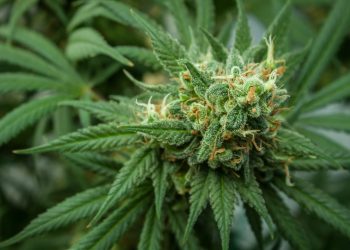[ad_1]
Healing the Mind: The Impact of Medical Cannabis on PTSD
Post-Traumatic Stress Disorder (PTSD) is a debilitating mental health condition that affects individuals who have experienced a traumatic event. Symptoms can include flashbacks, nightmares, anxiety, and intrusive thoughts. While traditional therapies such as psychotherapy and medications can be effective for some individuals, there is growing interest in the potential therapeutic benefits of medical cannabis for treating PTSD. In this article, we will explore the impact of medical cannabis on PTSD and discuss how it may help to heal the mind.
Understanding PTSD
Before diving into the potential benefits of medical cannabis for treating PTSD, it is important to understand the complexity of this condition. PTSD can develop after a person experiences a traumatic event such as physical assault, natural disaster, or combat exposure. The individual may feel intense fear, helplessness, or horror during the event, and symptoms can persist long after the traumatic experience has ended.
Common symptoms of PTSD include:
- Flashbacks and nightmares
- Emotional numbness
- Hyperarousal (easily startled or on edge)
- Avoidance of triggers related to the traumatic event
These symptoms can significantly impair an individual’s quality of life and make it challenging to engage in daily activities. Traditional treatments for PTSD include medications such as antidepressants and antianxiety drugs, as well as therapies like cognitive-behavioral therapy (CBT) and eye movement desensitization and reprocessing (EMDR).
The Potential Benefits of Medical Cannabis for PTSD
Research on the potential benefits of medical cannabis for PTSD is still in its early stages, but preliminary studies have shown promising results. One of the key ways in which medical cannabis may help individuals with PTSD is by reducing symptoms of anxiety and hyperarousal. Cannabinoids, the active compounds in cannabis, have been shown to have anxiolytic (anti-anxiety) effects and may help to regulate the body’s stress response.
In addition to reducing anxiety symptoms, medical cannabis may also help individuals with PTSD manage their sleep disturbances. Many individuals with PTSD experience frequent nightmares and disrupted sleep patterns, which can contribute to exacerbating their symptoms. Some studies have suggested that cannabinoids may help to improve sleep quality and reduce the frequency of nightmares in individuals with PTSD.
Another potential benefit of medical cannabis for individuals with PTSD is its ability to modulate memory processes. Traumatic memories can be intrusive and overwhelming for individuals with PTSD, leading to flashbacks and emotional distress. Cannabinoids may help to dampen the intensity of traumatic memories and reduce their emotional impact, allowing individuals to process and cope with their experiences in a healthier way.
Common Questions About Medical Cannabis and PTSD
As interest in medical cannabis as a treatment for PTSD continues to grow, many individuals have questions about its safety, legality, and efficacy. Here are some common questions and answers related to medical cannabis and PTSD:
Is medical cannabis legal for treating PTSD?
The legality of medical cannabis for treating PTSD varies depending on the state or country in which you reside. In some regions, medical cannabis is legal for individuals with PTSD who have a prescription from a qualified healthcare provider. It is important to research the laws and regulations in your area before exploring medical cannabis as a treatment option.
Is medical cannabis safe for individuals with PTSD?
While medical cannabis is generally considered safe for most individuals, there are potential risks and side effects to consider. Some individuals may experience side effects such as dizziness, dry mouth, and impaired coordination. It is important to consult with a healthcare provider before starting medical cannabis to assess the potential risks and benefits for your individual situation.
How can I obtain medical cannabis for treating PTSD?
If medical cannabis is legal in your area for treating PTSD, you will need to obtain a prescription from a qualified healthcare provider. Your healthcare provider will assess your symptoms and medical history to determine if medical cannabis is a suitable treatment option for you. Once you have a prescription, you can obtain medical cannabis from a licensed dispensary or healthcare provider.
Conclusion
Medical cannabis shows promise as a potential treatment option for individuals with PTSD. Research has shown that cannabinoids may help to reduce symptoms of anxiety, improve sleep quality, and modulate memory processes in individuals with PTSD. While more research is needed to fully understand the impact of medical cannabis on PTSD, early studies suggest that it may offer a valuable alternative or complementary treatment for individuals who have not found relief with traditional therapies.
If you are considering medical cannabis for treating PTSD, it is important to consult with a qualified healthcare provider to discuss the potential risks and benefits for your individual situation. By working with a healthcare provider and exploring all available treatment options, you can make informed decisions about your mental health and well-being.
In conclusion, medical cannabis has the potential to play a valuable role in healing the mind and alleviating symptoms of PTSD for individuals who are struggling with this debilitating condition.
[ad_2]































































